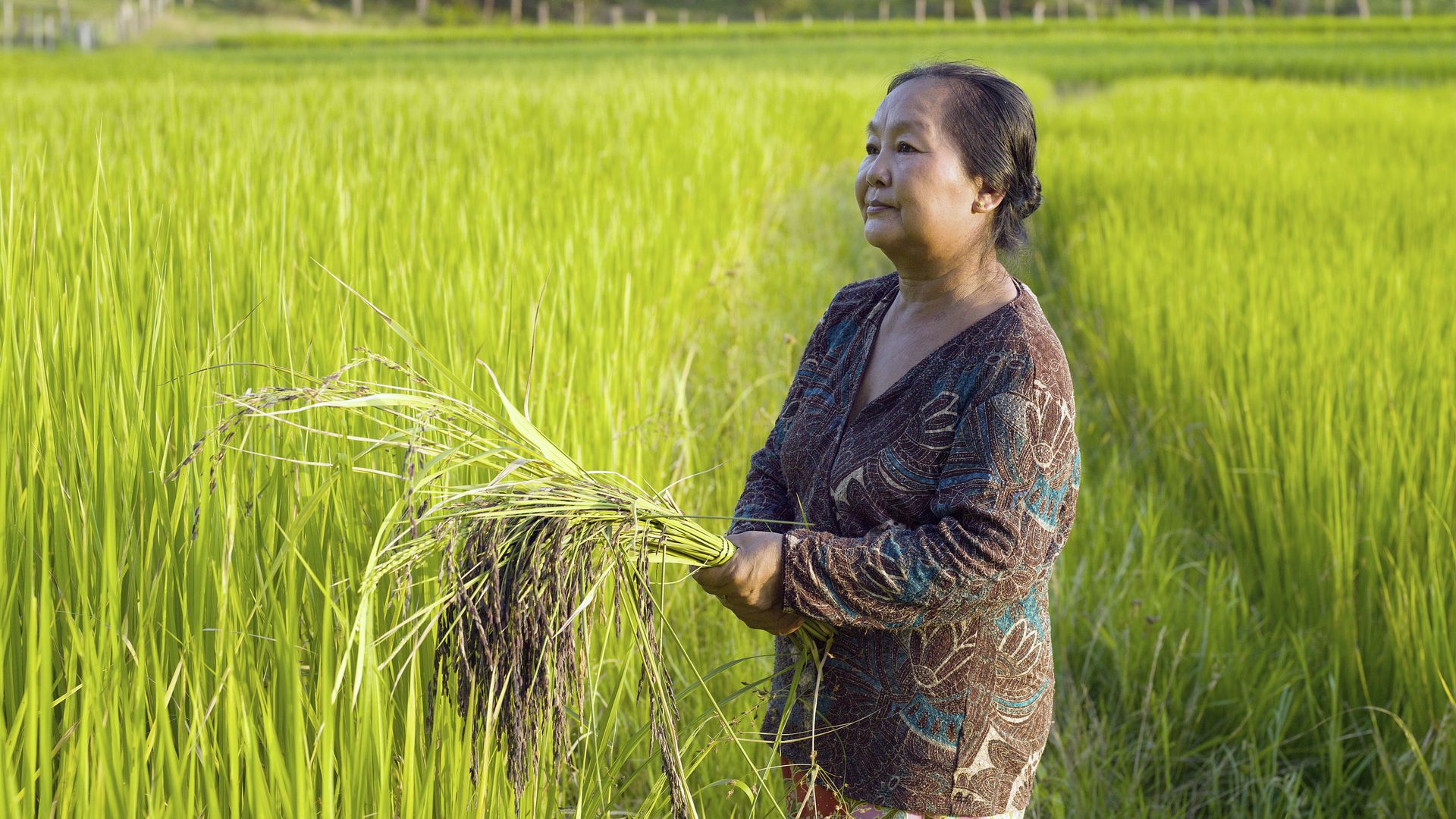Updated Jun 26, 2018 - Energy & Climate
Expert VoicesWorld population growth demands more U.S. agricultural research
Add Axios as your preferred source to
see more of our stories on Google.

A ricer farmer in Tao Than village, Laos, an area hard hit by climate change. Photo: In Pictures Ltd./Corbis via Getty Images
